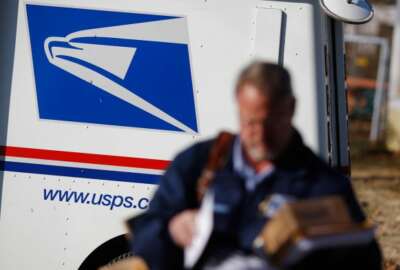
USPS early outs and you: Good deal, or return to sender?
The Postal Service’s early retirement offer has given new (probably false) hope to feds in other agencies who would love to retire early on an immediate but...
The Postal Service’s early retirement offer has given new (probably false) hope to feds in other agencies who would love to retire early on an immediate but reduced annuity. That’s because many people think that buyouts (VSIPs in government lingo) and VERAs (early retirement) go hand in hand. That’s usually true, but not in the case of the Postal Service, which is offering the early retirement option through April and only to non-bargaining unit workers at headquarter and area and district offices. The vast majority of the Service’s 645,000 workers are represented by unions (most are also actually dues-paying members) and aren’t eligible for the early out.
It’s also likely that, under the Biden administration and with Democratic control of Congress, many if any other federal operations will be downsizing and need to offer buyouts or early outs. While private sector jobs have disappeared at an alarming rate because of the COVID-19 pandemic the government has been growing. The Transportation Security Administration is looking to hire up to 6,000 more people in anticipation that air travel will be going up, big time, in the coming months and years. Many other agencies with health and safety roles will be hiring more people. The Postal Service is the exception.
Since the Post Office Department left the Cabinet and because it’s a semi-government owned corporation, many politicians and private companies have sought to limit its role. The idea was and is to let private companies handle high-end, high-revenue shipments leaving the USPS with less profitable options: Like the requirement to deliver a letter from Florida to Alaska for 55 cents (not a profit-making move) while letting non-postal delivery firms take-on more lucrative delivery options, sometimes using the USPS to deliver their goods. During the Trump years the Postal Service took heat because of the flap over voting by mail. Many thought it was under orders to self-destruct or slow deliveries to ‘prove’ it was unreliable. Bottom line is that whatever the future holds for the USPS, it isn’t likely to impact feds in other agencies—except when their mail is delayed too.
Many feds have been dreaming of buyouts since they were first launched during the Clinton years. The President wanted to reduce government to its size during the Kennedy administrations. Buyouts linked with early retirement was the answer. The first buyouts were authorized by Defense (primarily at naval shipyards) and were worth a maximum of $25,000. Later VSiPS and VERAs were expanded to other agencies. But the $25,000 maximum payment has remain unchanged except for Defense which can offer up to $40,000. Also, agencies offering early outs without a buyout usually got few takers! Also in most cases that $25,000 shrinks to $17,000 or $18,000 after deductions.
VERAs without a cash payment can be useful to select workers. They can allow eligible employees to retire years early on a reduced annuity partially protected from inflation. But those annual cost of living adjustments don’t begin until age 62 for anyone under age 62. So an employee under the FERS retirement system might be able to retire in his or her 50s but wouldn’t have any COLA (cost of living adjustment) protection until age 62. Feds considering early retirement should also check to be sure they don’t run afoul of the 5-year rule for health plan coverage. Government employees and retirees now qualify for anywhere from 20 to 40 health plans and options. They can change plans every year if they like and can’t be turned down for any reason. Workers and retirees pay the same premiums in the same plan. And the government pays more than 70% of the average premium. Few private companies offer such a benefit, so many options or, in many cases, any health insurance at all.
A Washington area financial planner says she warns all her fed clients to think carefully before leaving government early if higher pay is the primary reason. “When you consider the TSP match, the government health insurance options and things like vacation time and holidays in government I tell people they better get A LOT more money” before trading their federal job for other work.
So while the USPS offer is interesting, it won’t have any impact on most feds much less most postal workers. But for those still dreaming of retiring early with buyout consider this: There are times when the numbers tell you that the only thing worse than taking early retirement with a buyout is taking early retirement without one.
Nearly Useless Factoid
When Big Ben is running slow, workers add an old penny to pendulum to cause it to speed up. Adding one penny causes the clock to gain two-fifths of a second in 24 hours.
Source: Reuters
Copyright © 2025 Federal News Network. All rights reserved. This website is not intended for users located within the European Economic Area.
Mike Causey is senior correspondent for Federal News Network and writes his daily Federal Report column on federal employees’ pay, benefits and retirement.
Follow @mcauseyWFED
Related Stories

You and your federal retirement: No politics, please




